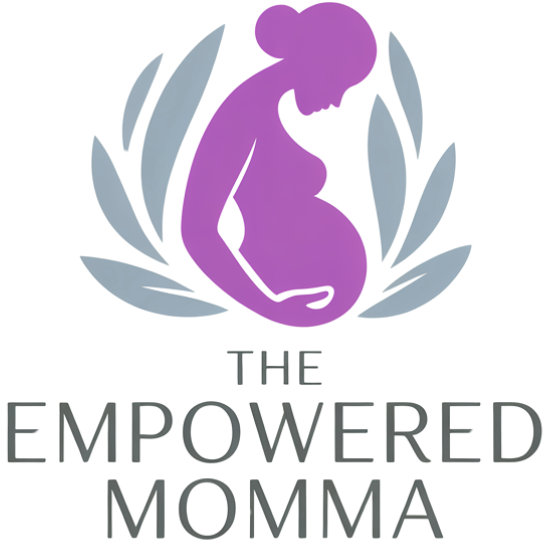Pregnancy is a major life change for both parents. While mothers physically carry the baby, fathers are also key during these important nine months. They do much more than just wait-they have an active part to play through care, support, and shared responsibility. A dad’s involvement, from giving emotional help to lending a hand with daily needs, can really help a mom feel better and even support the baby’s growth. This article explains simple and practical ways for fathers to be good partners during pregnancy, making the experience happier and healthier for everyone.
The Father’s Role During Pregnancy
A father has many ways to help during pregnancy. It’s not just about being there while waiting for the birth. Fathers can help emotionally, physically, and by joining in as decisions are made. Dads can listen, show kindness, and share excitement about the coming baby, which can make the family feel strong and connected. Dr. Anne Whitworth from Aspirus St. Luke’s Clinic points out that her job is to help families move forward, which means helping dads believe in themselves, too.
- Come to doctor’s appointments
- Help shop for baby items
- Join classes together
- Notice changes their partner is experiencing-and be kind about them
- Make healthy changes themselves (quit smoking, eat better, exercise)

A father who does these things shows support and a willingness to share the journey as well as the responsibilities.
Why Partner Support Matters for Moms
Supporting a pregnant partner makes a huge difference in her well-being. Pregnancy comes with big physical and emotional changes. Having a supportive partner nearby can help lower her stress and help her have a better pregnancy experience. Research from the BMC Pregnancy and Childbirth Journal in 2013 showed that women with involved partners were more likely to breastfeed longer and feel happier with their breastfeeding. They also felt more positive about pregnancy overall, especially when they felt listened to and cared for. Simple, consistent encouragement from a partner can make a world of difference.
How Dad’s Involvement Helps the Baby
When fathers participate during pregnancy, it benefits the baby, too. Certified midwife Lisa Vagi from University Hospitals says when fathers are involved, children often have better physical and mental health. These children also tend to be more social, have higher self-esteem, do better in school, and have fewer behavior issues. Bonding starts in the womb, and babies can begin to recognize their dad’s voice even before birth. This early connection helps build a strong relationship between father and child later on.
Ways to bond before birth:
– Talk or sing to the baby
– Read stories or make jokes
– Touch the baby bump and feel kicks together

Giving Emotional Support During Pregnancy
One of the most helpful things a father can give is emotional support. Pregnancy is full of ups and downs-hormone changes, aches, new worries. When dads are kind, patient, and understanding, moms feel safer and more comfortable with sharing their feelings. Help her feel loved by encouraging her to talk about her emotions and listen attentively without judgment.
Tips for Good Communication
| What to Do | Why It Helps |
|---|---|
| Listen without interrupting | Makes her feel heard |
| Say things like “It’s okay to feel upset” | Shows you understand her |
| Ask questions like “How can I help?” | Opens the door to honest talks |
| Share your own feelings | Makes it a two-way conversation |
Dealing with Changing Moods
Mood swings are common. One moment she may be happy, the next she might be upset. Recognize these changes as normal and try not to take them personally. If she feels down, offer a comforting word, a hug, or help her with something she likes. Use humor or gentle encouragement when things are tough, especially during labor. Your patience and steady attitude are important.
Helping Her Relax and Reduce Stress
- Suggest restful activities (prenatal yoga, meditation, or quiet time)
- Take on extra jobs at home to give her time to rest
- Make the home cozy-add pillows, use nightlights for safe bathroom trips
- Go on gentle walks together
Small gestures like these can help her stay calm and feel cared for.
Supporting Physically During Pregnancy
Besides emotional help, physical support is important, too. As a pregnant partner’s body changes, dads can step in to make everyday life easier. Helping physically shows love and makes the process less tiring for everyone.
Tackling Daily Chores and Routines
| Task | How Dad Can Help |
|---|---|
| Cleaning & laundry | Take over regular chores |
| Cooking & groceries | Prepare healthy, easy meals and snacks |
| Manage strong smells | Remove offending garbage or avoid cooking foods that bother her |
| Safety work | Add nightlights, clear hallways, do heavy lifting |

Practical actions like these let her use her energy for what matters most.
Going to Prenatal Appointments
Joining your partner at doctor appointments shows care and keeps you in the loop with what’s happening. You can ask questions, listen to the doctor, and share in the excitement when you see an ultrasound or hear the heartbeat. If only one person is allowed in, ask if you can video call. Your presence helps your partner feel less alone.
Encouraging Good Eating, Rest, and Habits
- Cook nutritious meals and offer snacks she can tolerate
- Watch out for foods she shouldn’t eat (like raw fish or undercooked meat)
- Remind her to take breaks and help set up the bedroom for good sleep
- Do gentle exercise together-if her doctor says it’s okay
All these steps support her and the baby’s health.
Bonding Before Birth
Fathers can connect with their babies even before birth, which is both rewarding and helpful for building a relationship right from the start. When dads regularly talk, sing, or read to their partner’s belly, babies become familiar with their voice and feel comforted by it after they’re born. This simple habit also helps mothers feel closer to both their partner and baby.
Ways to Bond:
- Speak or sing to the baby
- Read stories or talk about daily life
- Feel the baby kick with your hand
- Go to ultrasounds and collect pictures
These experiences are easy ways to start building your connection.
Dad’s To-Do List by Trimester
| Trimester | Common Challenges | How Dad Can Help |
|---|---|---|
| First (Weeks 1-13) | Nausea, tiredness, mood changes, food aversions |
|
| Second (Weeks 14-27) | More energy, visible bump, baby movement |
|
| Third (Weeks 28-40+) | Physical strain, trouble sleeping, preparing for labor |
|

Preparing for Labor, Birth, and After
Support doesn’t stop with pregnancy-it’s just as important during labor, birth, and during recovery at home. Being ready, informed, and supportive can make these stages easier for mom and baby. Prepare by learning about the birth process and how you can help during and after.
Getting Ready for the Birth
Go to birth classes together to learn about delivery and what to expect. Try to visit your chosen hospital or birthing center if you can. Make a birth plan together-write down your partner’s wishes (pain relief, who cuts the cord, etc.) and bring copies with you. This planning makes things feel more in control for your partner.
Helping During Labor
- Be there as a calm and steady helper
- Distract with music, funny shows, or by giving a back rub
- Support her choices and speak up for her when needed
- Encourage her to rest between contractions
- Use humor and patience when things get tough
After Birth: The Postpartum Period
Life changes fast after the baby arrives. Moms need extra rest, especially at first. Here’s how dads can help:
- Take care of chores, cooking, and caring for baby
- Change diapers and help with baths
- Hold the baby so mom can eat or shower
- Support feeding (bring water, snacks)
- Take turns with baby’s bedtime routine
- Keep reminding her she’s doing great
- Remember to care for your own needs, too
Knowing When More Help Is Needed
Sometimes, professional help is necessary. Pay attention to how your partner (and you) are coping. If things seem harder than expected, talk openly and consider medical support. Asking for help is a smart choice for your family’s health.
Spotting Depression or Anxiety
Prenatal depression or anxiety can go unnoticed. Signs include lasting sadness, loss of interest in things she liked before, big changes in eating or sleeping, strong or constant worry, pulling away from friends, or feeling hopeless. Listen with kindness and suggest seeing a doctor if these feelings continue.
Getting Medical Advice
If your partner has symptoms like severe headaches, swelling in hands or face, blurry vision, or lasting pain, get help from a doctor right away. Watch for very bad morning sickness or muscle cramps that don’t go away. Therapist support or local support groups can also help if emotions run high or if either of you feels overwhelmed.
Common Questions About Helping During Pregnancy
As dads go through pregnancy with their partners, lots of questions come up. Here are some quick answers to the most common ones:
Should Dads Join Prenatal Classes?
Yes, both parents should join. These classes help everyone learn about birth, baby care, and what to expect after delivery. Fathers who go learn practical skills, clear up worries, and show they’re committed. Classes are also a good way to meet other parents and create a support network. Going together helps you both feel like a team.
How Can Dads Balance Work and Help at Home?
Talk with your partner about schedules and agree on ways to share tasks. Look for chances to switch your work hours for important appointments or big events. You can also plan regular time together at home for chores or relaxing. Even short periods of focused help or attention can mean a lot. Consider hiring help if you can afford it, especially near the due date or after the baby comes home.
What If the Pregnancy Is High-Risk?
High-risk pregnancies mean more stress and more doctor visits. Be calm and always ready to listen to your partner’s worries. Go with her to appointments, keep track of medicines or special instructions, and help her stick to any new routines. Learn about her health needs so you can ask the right questions. If things get extra hard, seek extra support from professionals or groups for high-risk pregnancies. Your steady help makes a real difference.





